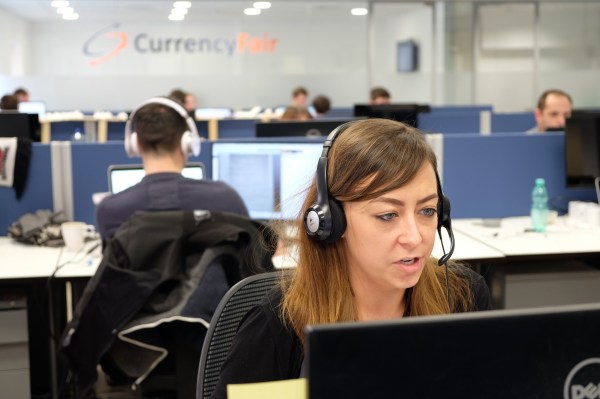VCs continue to plough money into money transfer/currency exchange startups in Europe. This time it’s the turn of CurrencyFair, which has raised a further €10 million. The round was led by Octopus Investments, with participation from previous backer Frontline Ventures.
The Dublin-headquartered startup says it will use the additional capital to take advantage of the growing market for so-called peer-to-peer currency transfer — as a plethora of startups use technology and lower margins to offer an alternative to the banks and legacy FX exchange companies, such as Western Union et al. — and to expand the number of currency corridors it’s able to offer. CurrencyFair currently focuses on money transfers between the U.K., Europe and Asia-Pacific.
In a statement, CurrencyFair CEO Brett Meyers said: “The money transfer sector has seen a lot of attention recently, with customers beginning to realise the high fees charged by banks when sending money internationally. These customers, made up of an internationally mobile workforce, retirees and foreign property owners, are regularly sending £2,000 or more in the form of pay, pensions, mortgages and rents. For these people we are a great match as we are virtually unbeatable over £2,000, sometimes even beating the interbank rate, which banks, brokers and other transfer services can’t do.”
And attention, the money transfer market has been getting, thanks to a heated fintech sector, in particular in London, but also elsewhere in Europe and beyond.
The noisiest of all the money transfer upstarts is TransferWise, which recently raised a further $58 million led by Andreessen Horowitz, and is spending relatively heavy on advertising, along with conducting an endless array of marketing stunts involving half naked bodies. The company also counts Sir Richard Branson, Peter Thiel’s Valar Ventures, Index Ventures, IA Ventures, and Seedcamp as backers.
WorldRemit, backed to the tune of over $140 million from Technology Crossover Ventures and Accel Partners, is also noteworthy (and the best funded). There’s also Lithuanian-based TransferGo, and the UK’s Azimo, to name but a few. The latter focuses more on the diaspora money transfer market, where I’d suggest its main competitor isn’t bank transfers but rather Western Union and other companies that offer a physical location to collect the transferred cash.
For those of you who aren’t familiar with the so-called P2P model, the idea is that consumers’ money exchange needs are matched so that money doesn’t leave each country unnecessarily. However, where there is a mismatch between the amount of money customers in one country/currency want to exchange with another, these startups have to fall back on the open FX market where margins are tighter, leading some to suggest that the P2P model isn’t quite all it’s cracked up to be.
